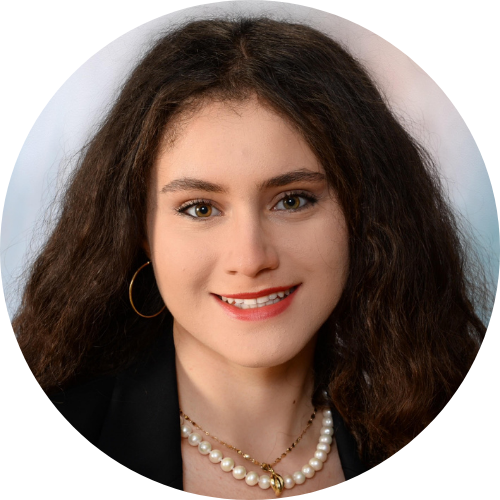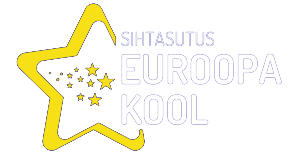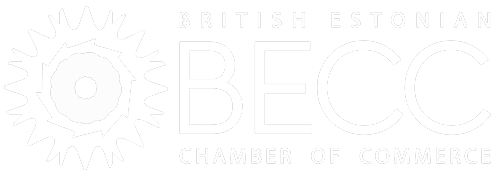Interview with Beatrice Mamlin (TES Graduating Class of 2021)
TES Alumna Beatrice Mamlin (Graduating Class of 2021) is starting a new academic journey at Sciences Po Paris, a prestigious French “grande école” where she will be following the European Franco-German programme in Nancy. While getting ready for her new life in France, Beatrice was kind enough to tell us more about her experience at TES, how she got prepared for university and gives some precious pieces of advice to our secondary pupils.

Good morning, Beatrice. Congratulations on your recent TES graduation. Tell us a bit about yourself.
My name is Beatrice and I have been in this school since S2, so 2015. Before coming to TES, I have been living in different countries. With all of this moving, and my bilingual household, I learned seven languages, and now speak English, Russian, Hebrew, German, French, Finnish, and some Estonian. I am also a musician; I graduated from the Tallinn music school this year and play piano and clarinet, and I hope to continue advancing my music skills in university too!
Why did you choose to attend TES?
TES follows an incredible curriculum that cannot be followed anywhere else. First of all, I find the EB to be a particularly interesting baccalaureate, in which one studies a second language extensively by following history, geography and economics in that language. The EB, only offered in TES in Estonia, is also a programme that is very multidisciplinary, and you must have at least 10 subjects studied in order to graduate, which is a lot more than in other programs. Although the respected reputation of the EB is remarkable, I chose TES for its incredible attitude, which always welcomes newcomers very well.
What are your plans after graduating from TES?
I will attend ‘Sciences Po Paris’ university in France. I will be following the European Franco-German programme located on the Nancy campus of the university. The bachelor program or the ‘college’ is a multidisciplinary programme in which I will be studying economics, political science, sociology, law, humanities and more. The programme suits me well, as it is in French, German and English- all at the same time!
Congratulations! Sciences Po Paris is one of the best universities in France and Europe. What did it take to get accepted into such a competitive programme?
I believe that at Sciences Po there is no one perfect profile for a candidate. However, very high grades, language skills, and intellectual curiosity are incredibly important. I enjoyed the application process, although I found it particularly challenging. First, unlike most European universities, there are several essay type prompts to write. Although more typical in the US, Sciences Po implemented these prompts in more recent years. If admissible, one has to go through several interviews, which are, of course, something out of the ordinary for most students. Ultimately, I would say that the most important components to an application to Sciences Po are good written and oral skills, an international profile, and showing genuine interest and knowledge in current affairs and the humanities.
How did TES prepare you for university life in terms of subjects studied and the application process in general?
TES is an incredible school for languages and the humanities. Thanks to the curriculum, and studying history and geography in a foreign language, one develops an appreciation for linguistic nuances. TES is thus great with languages- when I came to the school, I spoke no German, no French, and some English, and am now going to study in all of those languages. Lastly, our school puts great emphasis on oral skills through presentations, public speaking, encouragement and the final oral BACS. I was therefore able to do well on the rigorous interview process with Sciences Po, which can be very abstract and challenging.
The application process was incredibly difficult for me in terms of deciding what and where I wanted to study. Our (external) counsellor with coordination with TES helped me narrow my choices, explained the application processes in different countries, and gave constructive comments where needed. His guidance was incredibly valuable, without which the application process would have been impossible.
Moreover, since our school is international, one is able to access all of the information needed. Our school is a UCAS centre, which is helpful with UK applications. Our French teachers are also incredibly knowledgeable about universities, and I have even done Mock interviews with some of them. Lastly, all of our teachers are very kind and are ready to help with personal essays, guidance, and recommendation letters.
In hindsight, what would you have done differently two years ago at TES compared to what you know today?
Personally, I would have probably calmed myself down a bit more. Although grades are important, they are not everything, and they are also not the most important thing in an application. In hindsight, I would have started earlier with different internships and work experience, and perhaps realized that the university application process is not as scary as it seems.
How important were subjects choices for you in S6, S7, what were your favourite subjects and why?
Subject choices are tricky. It depends on what your best subjects are, and also on what you want to do in the future. It is very important to have the best grades possible on the Bac, so it is good to choose the subjects you are best in. However, this is a problem when you do not know what you want to do in the future. Personally, as subject choices occur in S5, I did not know what I wanted to study in the future and did not want to limit myself. I took chemistry and advanced mathematics, just in case I wanted to get into science in the future. As I am now going into social sciences, Chemistry or advanced math are not very useful. Although those subjects were fun, they were also very challenging. Therefore, from my experience, it is better to take subjects which one is truly good at, as it is also most likely going to be your future degree. My favourite subjects were Philosophy and Geography!
For our current secondary students, what is your advice?
Get involved, grow, and learn about yourself! Although grades are incredibly important for universities, it is also very important to show other activities. I am not telling you to go volunteer at a homeless shelter (unless it is truly something you want to do), just for university brownie points, but find something that you are actually passionate about and stick to it! Sports, music and social activities are all great choices.
Additionally, if you are in upper secondary, it is important to start researching universities and subjects you enjoy: read books, listen to podcasts, and do your research!
What did you like most about TES? What did you not like so much about TES?
It is not hard to get integrated into the community at TES. Personally, I always felt like I did not belong in most schools I have been to, since I was always a foreigner. However, at TES, when everyone is a foreigner, you feel like you are indeed a part of the community! I think that one of the best parts about TES is that if you have a problem, there are a lot of staff members who are there to listen and to support you with it.
I believe that TES should continue to work on expanding the scientific section. Currently, more teachers are within the subjects of the humanities. Expanding the scientific section is vital in order to increase the average TES Bac grade for the sciences.
If you come back to TES in ten years, what would you like to see?
Student associations! At the moment, the school mostly offers extracurriculars for the lower classes, and the main thing upper secondary students get involved in is the student council. I would really like to see more artistic clubs such as music and theatre for upper secondary, as well as a diverse debate club!








